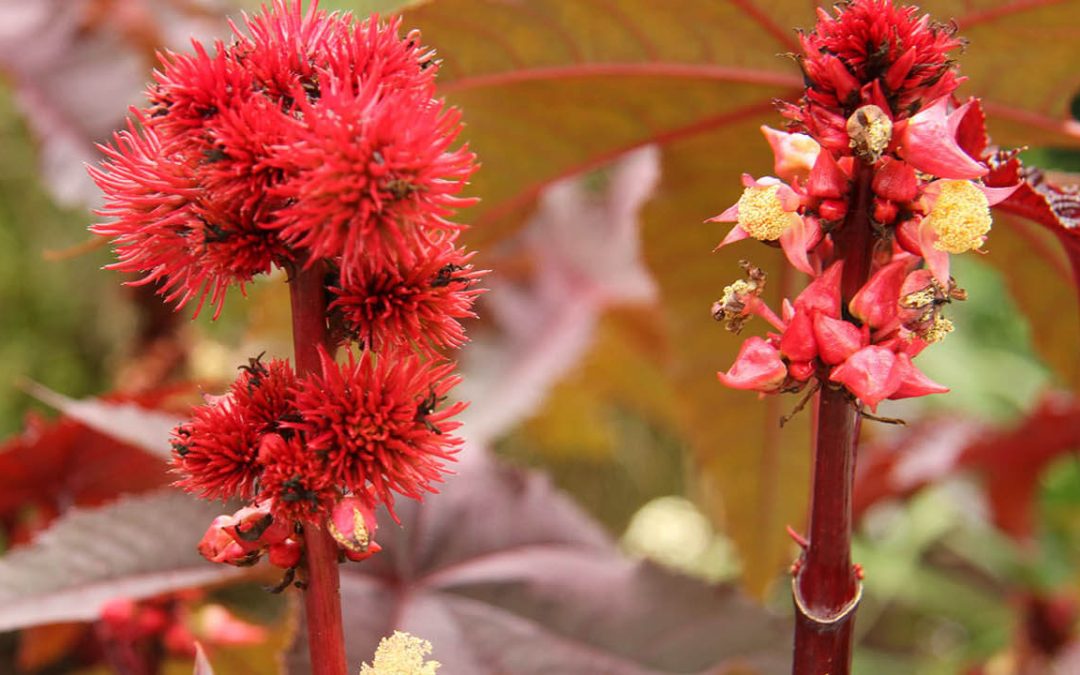The Castor oil used in our products is a non-toxic, expeller pressed and an ultra, high quality oil rich in glycerin esters of ricinoleic acid (fatty acid).
Castor oil is used throughout the world for a variety of things, but its main affinity is the skin. It is therefore readily found in soaps and skincare products.
Characteristics: Anti-viral, antibacterial, anti-microbial, anti-inflammatory, anti-acne, cleansing, hydrating, moisturizing, non-comedogenic.
Lately Castor oil has been targeted for its toxic processing requirements.
BACKGROUND:
– Castor beans contain Ricin, considered to be one of the most toxic substances found in nature and has been a known biological weapon since WWI. – Castor oil is a Category B threat by the CDC
– There is no known andecdote for Ricin poisoning.
– Castor plants are also allergenics
– Castor oil DOES NOT CONTACT RICIN
THE PROCESS:
Castor oil DOES NOT CONTACT RICIN. It is removed during the extraction process. The issues that are being raised are 2-fold:
- Human rights concerns surround the factory and farm workers who grow, harvest and process the beans. Prolonged contact with the plant’s sap, flowers, seeds or leaves may result in a rash which can also develop into conjunctivitis (assuming eye contact is made with skin or hands). Castor plant will also produce a great deal of pollen, similar to Ragweed, and therefore cause allergies. In severe cases asthma may develop (mostly seen in factory workers)
- The proper disposal of the Ricin rich “mash”
ISSUE #1: Worker exposure to toxin
A note on this issue, it has been written across internet websites the following statement:
“Allergenic compounds found on the plant surface can cause permanent nerve damage , making the harvest of Castor beans a human health risk.”
There is no substantiated evidence of this occurring. In fact, Castor plants grow wild throughout Florida, Texas and California and are commonly found as a garden ornamental.
The same risks factory workers face in processing Castor oil are the same for the following workers:
– Coffee factory workers
– Cocoa bean processors
– Microwave Popcorn Plant
– Confectionery plant workers
– Spice processors
– Soybean processors
ISSUE #2: Proper Disposal of Ricin
Ricin mash is properly neutralized and then recycled for the following purposes:
– Animal feed
– Fertilizer
– Wallboard material
– Used in cancer cell fighting therapies
– Used in bone marrow rejection therapies
